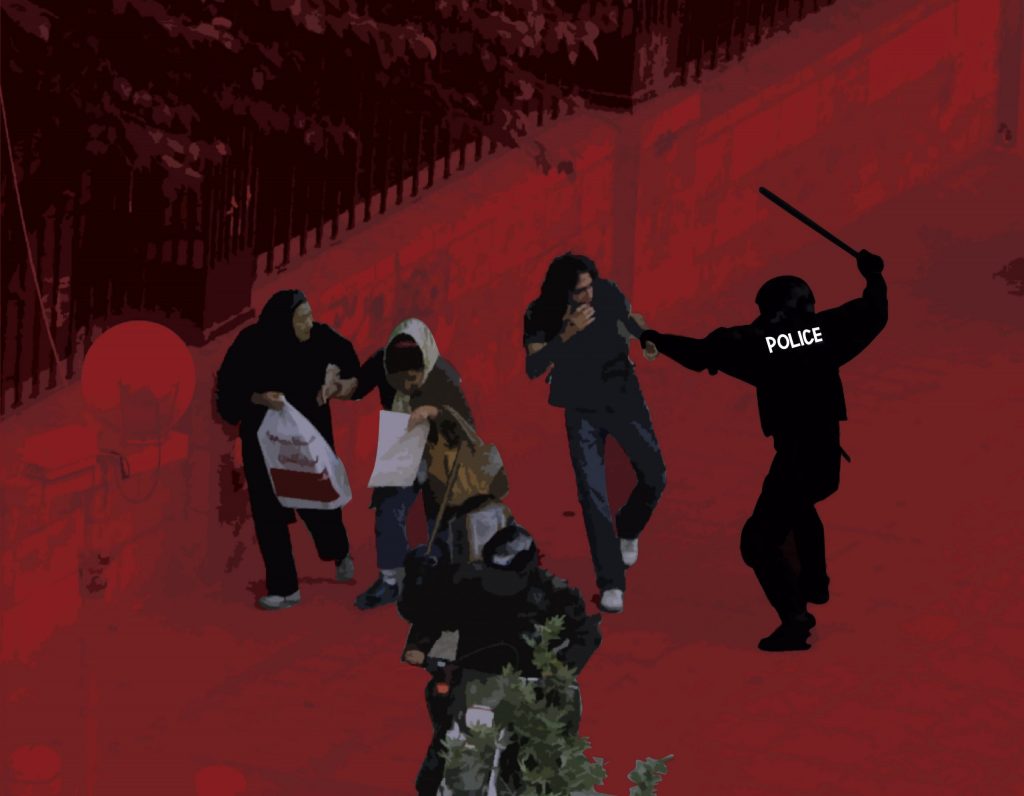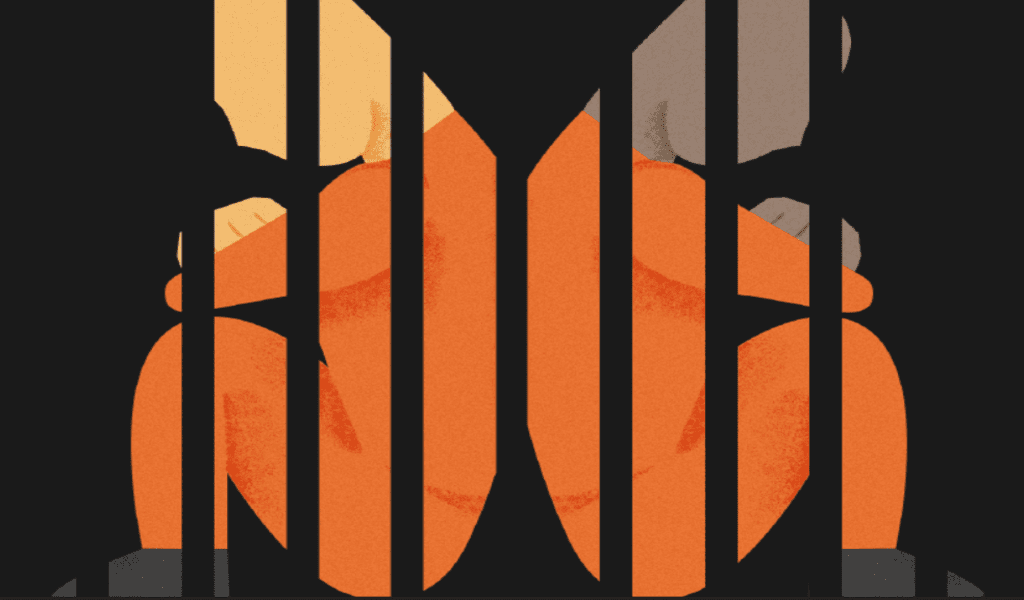
One of the worst crimes in a civilized society governed by the rule of law is custodial death. Does a citizen give up his fundamental right to life the moment a policeman arrests him? Can a citizen’s right to life be suspended on his arrest? The answer should be an emphatic no. In India where the rule of law is enshrined in every action and the right to life and liberty is considered a fundamental right, which holds the highest position among all-important fundamental rights, instances of torture, and the third degree on suspects during illegal detention and police remand using methods stigmatize a system of administration.
Custodial torture is universally recognized as one of the most brutal forms of human rights abuse. It is prohibited by the Constitution of India, the Supreme Court, the National Human Rights Commission (NHRC), and the United Nations. But the police across the country ignore these institutions. Custodial deaths are incidents of death of persons who have been detained by the police during pre-trial or after conviction. Custodial deaths can be classified into three types –
- Death in police custody;
- Death in judicial custody; and
- Custodial death of army or paramilitary force.
The term custodial violence is not defined under any law. It is a combination of the two words detention and violence. Even when an application is made to imply arrest or imprisonment, there are no ill characters during detention. The word custody in a law dictionary; defined as a charge and in relation to a person in prison: judicial or punitive protection. According to the Chamber Dictionary, the state of being caught, arrested, or imprisoned by the police is called custody. According to the Legal Glossary Dictionary, detention is imprisonment, the detention of a person by virtue of lawful power or authority. Custodial death is widely referred to as death that occurs to a person who is under trial or has already been convicted of a crime.
It can be due to natural causes like illness or even due to suicide, there can be fighting among prisoners but in many cases, police brutality and torture is the cause of death. The matter is very controversial and complicated. Often, victims are tortured before they are arrested, that is before they are taken into custody, which allows the police to easily claim that these are not incidents of custodial violence and that the injuries occurred before the arrest. Sometimes, before the arrest, the victims are killed in fake encounters. This is also a type of custodial death, which becomes very difficult to prove. The most intriguing aspect is that all the evidence and records are with the police, external evidence is hardly available. This creates great difficulty in identifying custodial violence and subsequent deaths.
Custodial death is one of the highest forms of human rights violations. This is a direct attack on the right to life and liberty guaranteed by the Indian Constitution. It is the responsibility of the respective states to protect the lives of the accused and the convicts. Persons who have been charged with or convicted of crimes are entitled to a fair trial, protection, and security in police and judicial lock-ups and correctional homes. But law enforcement officers often miserably fail to discharge their constitutional obligations and what is even more unfortunate is that after such incidents, every effort is made on the part of criminals to hide their misdeeds. The government plays a big role in saving the accused officers.
Laws against Custodial Torture

The Constitution and the legal system provide for various safeguards against custodial torture:
- Article 20(1) of the Constitution of India provides that no person shall be convicted of any offense except in contravention of the law in power at the time of the commission of the Act. Thus, this article prohibits the making of ex-facto criminal laws and also prohibits the application of any punishment in excess of what may be imposed under the law in power at the time of the commission of the offense. In short, the article prohibits the creation of a new offense with retrospective effect.
- Article 20(2) of the Constitution states that no person shall be tried or punished for the same offense more than once.
- Article 20(3) of the Constitution provides that no accused person shall be compelled to be a witness against himself. It is very important as it acts as a safeguard in obtaining evidence from the accused through coercion and torture. Interestingly, under Section 179 of the Indian Penal Code, every person is legally bound to tell the truth on any matter to a public servant. Section 161 of the Code of Criminal Procedure, 1973 also enables the police to interrogate the accused during the course of the investigation. But on the other hand, if any coercion, subtle or crude, mental or physical, direct or indirect, yet substantial, is applied by the police to obtain information from an accused, it becomes forced testimony, and It violates Article 20(3)
- Section 163 of the Code of Criminal Procedure, 1973 prohibits the Investigating Officer from making any inducement, threat, or promise under section 24 of the Indian Evidence Act but shall compel any person to make any statement. Stops what he wants. Make it as you wish. All confessions made under inducement, threat, or promise under section 24 of the Indian Evidence Act, 1872 are inadmissible. This section entitles the accused not to make any confession against his will as it is well understood that if such evidence is made admissible, it would amount to torture and force for the police to extract evidence against him will cause as a trigger to use.
- Section 164(4) of the Code of Criminal Procedure, 1973 provides for the recording and signature of the confession in a proper manner and by a Magistrate in support of the confession that it has been made voluntarily.
- This right against self-incrimination is in line with Article 14(3)(g) of the International Covenant on Civil and Political Rights, which calls on the Member States to ensure that the accused are not allowed to testify against themselves or to confess to guilt. Is not forced.
- Section 348 of the Indian Penal Code, 1860, among others, lays down the provisions relating to wrongful imprisonment and prohibits such imprisonment for any confession or information for the detection of any offense or misconduct. Such wrongful imprisonment has been made a punishable offense and is also liable to a fine which may extend to three years.
- Similarly, Sections 25 and 26 of the Indian Evidence Act, 1872 provide protection to the accused on the same lines. Section 25 states that any confession made before a police officer cannot be used to prove any offense against him. Section 26 makes all confessions made during custody inadmissible unless it is made in the immediate presence of a magistrate. However, Section 27 of the Act provides an exception to Section 25 to the extent that a custodial statement may be admissible if it leads to the discovery of some new fact.
In this regard, the Supreme Court has however held that if the accused is compelled to make a confession under this section, he can exercise his privilege against self-incrimination enshrined in Article 20(3) of the Constitution. However, this is debatable and many legal experts claim that such protection does not exist in practice, as it is extremely difficult for the accused to prove that his confession was obtained through compulsion.
Indian Scenario on Custodial Death
An average of 5 custodial deaths per day occurred in India between 1 April 2017 and 28 February 2018. According to the National Crime Records Bureau (NCRB) report, the number of deaths in police custody between 2001 and 2018 stood at 1,727. But, only 810 cases were registered, 334 charge sheets were filed, out of which only 26 policemen were convicted. The NCRB report specifically mentions that 58 custodial deaths in 2017 were of those who were not even produced in court.
According to the recently released 2019 National Crime Records Bureau (NCRB) report, 49 cases of human rights violations have been filed against various police departments across the country for encounter killings, custodial death, illegal detention, torture by police, extortion, and other offenses. A total of 85 people died in police custody in 2019, out of which 23 were arrested. Tamil Nadu reported the highest number of custodial deaths (11) in 2019, while in 2018, the majority of cases, 14, were reported from Gujarat, and last year, Andhra Pradesh reported the highest, 27.
Conclusion
India must ratify the United Nations Convention against Torture. It will mandate a systematic review of colonial rules, statutes, practices, and the detention and treatment of persons subject to arrest and detention. Arrangements will be made for the victims apart from institutions like visitors’ boards. Guidelines should also be formulated to educate and train the officers involved in the deprivation of liberty as torture cannot be effectively prevented unless the senior police assess the gravity of such issues and are clear from the existing practices. The reorganization is not done, unrestricted and regular access of free and qualified persons to places detained for inspection should also be allowed. CCTV cameras should be installed in police stations including interrogation rooms.
Investigations by non-official visitors should also be mandated which will act as a preventive measure against custodial torture. Implementation of the 273rd Report of the Law Commission of India: The report recommends that those accused of custodial torture – be they policemen, military and paramilitary personnel – should only face administrative action that establishes an effective deterrent instead of criminal prosecution. There are various laws and procedures that have already been established to minimize the possibility of human rights violations while the accused is in custody. Yet all cases keep coming up as there is no grassroots implementation of the recognized procedures.
It is also very important to provide ‘proper education’ to the police officers about the human rights of the prisoner or the person in custody. It is also important to provide the proper training and Behaviour towards the suspect or prisoner during the course of investigation or interrogation, the handling of the suspect or the prisoner. Thus, by duly educating and training police officers, respect for the person of man and human rights can be inculcated in them. Therefore, when our savior possesses these qualities and common manners, there will be no more the problem of custodial death in society.
Police forces in India enjoy great impunity and all governments prefer not to set precedence by giving exemplary punishments to guilty officials as the operation of any government depends to a large extent on law enforcement officers. They are the weapons of the government which act as its troubleshooters and also provide invaluable service to their political masters. That’s why no government would like to upset them.
However, the executive fails to realize that the real source of power emanates from the people, and the police, paramilitary and military are nothing but public servants. But they often resort to torture and violence. Unless this changes, it is highly unlikely that the incidence of custodial torture in our country will decrease. Hope one day, the custodial torture and death will become a past thing and police who is the servant of the public will serve with honesty and people would fear them not.